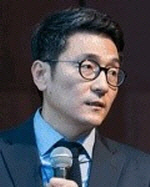Department News
[Seoul Economic Daily] Prof. Byeng Dong Youn [Opinion] ‘Industrial Data’ is Key for the Future
[Opinion] 'Industrial Data' is Key for the Future<?xml:namespace prefix = "o" ns = "urn:schemas-microsoft-com:office:office" />
Prof. Byeng Dong Youn, SNU Dept. of Mechanical and Aerospace Engineering
New Market Possibilities Are Endless
Industry 4.0 Rapidly Growing, Led by Xi Jinping
Korea Also Needs Fundamental Solutions Like Open Data

Prof. Byeng Dong Youn, SNU Dept. of Mechanical and Aerospace Engineering
Innovation leaders of the 21st century such as Google, Amazon, and Facebook grew via data-based industry. The Internet, popularized in 1990s, connected people and created data; the gained information led to new businesses. The Internet revolution of 2000s is being repeated now, 20 years after when it began. Data-driven industry still possesses endless potential.
If the Internet had been the infrastructure for creating new markets 20 years ago, Internet of Things (IoT), with its hyperconnectivity between individuals and physical objects, is the infrastructure of future new markets. Research suggests that by the year of 2030, the number of objects connected via IoT will increase to become more than 15 times bigger than the world population. A new market with unimaginable value will emerge from industrial data. This is the 4th Industrial Revolution.
The 4th Industrial Revolution is based on industrial data. In addition to IoT, 5G networks must be established to transfer data. Core technologies such as AI and cyberphysical system are required to analyze the data. Various convergence and integration will occur in the new market, including but not limited to smart cities, smart factories, and smart hospitals.
Let us examine smart factories. There are two methods in constructing a smart factory: platform development led by large corporations, and solution development by small and medium sized businesses, which will be loaded on platforms. Unfortunately, platforms developed in Korea are not faring well, overtaken in the global market by platforms made by GE, Siemens, and Honeywell. If we aim to compete with these foreign solutions with long histories, we need innovative mind, creativity, and challenge spirit, not to mention more time.
On the other hand, smart factory solution developers are showing rapid progress. OnePredict broke into the German market, providing system prognostics and health management technology from years of research. Other examples include SUALAB, a machine vision provider active in Chinese market, and Angelswing, well-known for their 3D mapping technology with drones used in the Nepal earthquake recovery site. The explosion in industrial data is a great opportunity for not only large corporations but also Korean solution developers to become global companies.
In order for these companies to have competitive power in the global market, government support and system improvement are necessary. Policies such as construction of smart factory model and demo factories, preventive measures against technology stealing, and regulatory sandbox are short-term solutions. We need more fundamental solutions such as disclosing industry open data, building data pools, and constructing public smart factory complexes where essential technologies can be tested.
In the case of China, we can observe astonishing government-led transformations. The ICT industry is growing exponentially, due to their strong domestic market. Alibaba, Baidu, and Tencent are moving toward mobile payments, bypassing card payments. Taxi sharing services are replacing the taxi industry. Intelligent industrial systems, where the system diagnoses itself on system health and safety, are quickly becoming mainstream. Even though they are going through restructuring, they will become stronger and more stable as time passes. China’s timely responses will lead the country to a great future in 2030, in 2050.
Industrial data is essential in our future, like rice. Just as we cannot live without rice, we will not survive the 4th Industrial Revolution without industrial data. If Korea aims to continue its growth and progress, it needs to get rid of old cartels and bring about innovations. The Korean DNA is strong but the government policies are inconsistent in preparing for the future. At a crossroads, we need leadership that can judge and act on what is best for the country and its future.
Link to article: https://www.sedaily.com/NewsView/1VGPR5TLUE

